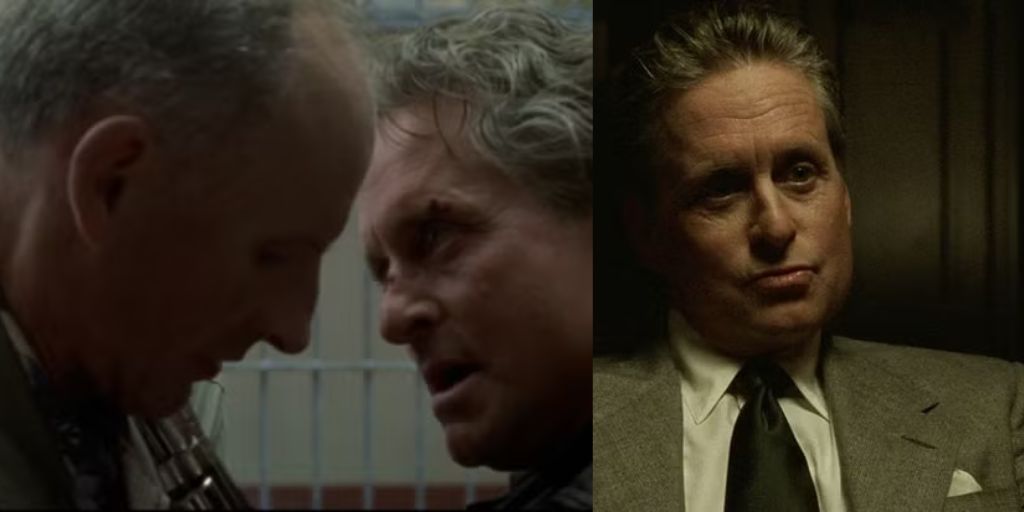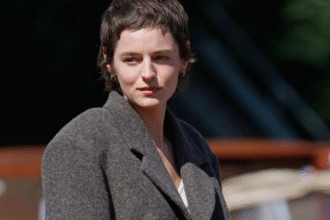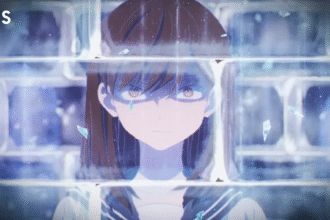
The Game tells the story of Nicholas Van Orton, a wealthy investment banker living in San Francisco. Nicholas is cold, methodical, and emotionally detached, shaped by a privileged upbringing and the trauma of his father’s suicide years earlier. His life is defined by control, from his business decisions to his personal relationships, which remain shallow and transactional.
On his birthday, Nicholas receives an unusual gift from his estranged younger brother Conrad: a voucher for a service provided by a mysterious company called Consumer Recreation Services (CRS).
The offer promises a life-changing “game” tailored specifically for him. Initially skeptical, Nicholas visits CRS out of curiosity. After extensive psychological and physical tests, he is told that his game will begin without warning and will blend seamlessly with his real life.
Soon after, his carefully ordered world begins to unravel. Strange events occur, his bank accounts are compromised, and he meets a woman named Christine who claims to be caught up in the same ordeal.
What starts as an odd diversion becomes a spiraling nightmare, with Nicholas losing control of his wealth, reputation, and safety. His trust in reality itself begins to collapse.
Also Read: Your Name Ending Explained, A Timeless Connection Fulfilled
The Build-Up: The Game Turns Deadly
As Nicholas falls deeper into the “game,” CRS becomes increasingly sinister. He finds himself chased by men with guns, locked out of his home, and betrayed by people he thought he could trust.
Christine alternates between ally and deceiver, heightening his paranoia. The possibility that CRS is an elaborate scam designed to rob him of his fortune seems increasingly real.
Every attempt Nicholas makes to regain control is thwarted. His survival instincts take over as he races through increasingly dangerous situations. His identity as a powerful banker means nothing now; he is stripped down to a desperate man fighting for his life.
The turning point comes when Nicholas flees to Mexico after being left stranded with no money or resources. There, he narrowly survives and begins his trek back to San Francisco. His once orderly existence has been shattered, and he is determined to confront CRS directly.
When he finally reaches Christine again, she confesses that she is just an actress, part of an elaborate deception orchestrated by CRS. But she also insists that the situation has gone too far and that Nicholas’s life is in real danger. This leads to the climactic sequence on the rooftop of a CRS building.
The Ending: The Fall and the Truth
The rooftop sequence defines the ending of The Game. Nicholas believes he has uncovered the truth: that CRS, Conrad, and Christine have all conspired to ruin him.
Convinced that his life is being destroyed, he draws a gun and demands answers. Christine pleads with him, insisting it is still part of the game and that no one wants to hurt him.
In a moment of panic and confusion, Nicholas shoots a man who bursts through the door. To his horror, the man turns out to be Conrad. Nicholas watches his brother collapse, bleeding to death. Overcome with grief and guilt, Nicholas sees no way forward. He walks to the edge of the rooftop and jumps.
But instead of dying, Nicholas crashes through a series of staged safety devices. He lands in a giant airbag inside a brightly lit room, surrounded by people applauding.
Everyone he thought had betrayed him, including Conrad and Christine, is alive and unharmed. The entire experience has been orchestrated as “the game.” Even Conrad’s supposed death was part of the plan, using fake blood and staged timing.
Nicholas is stunned, unable to fully process what has just happened. The gun he used was rigged with blanks. The near-death experiences, the betrayals, and the paranoia were all carefully designed by CRS. The goal was to push him to the breaking point, forcing him to reexamine his life.
The final scenes show Nicholas reconnecting with Conrad. The brothers share a fragile moment of reconciliation, something that had been absent in their strained relationship.

Nicholas, humbled and emotionally raw, accepts an invitation from Christine for a possible future connection. For the first time, he seems open to genuine human contact rather than the guarded isolation that once defined him.
The Meaning: Transformation Through Ordeal
The ending of The Game serves as both a psychological twist and a metaphorical rebirth. Nicholas’s leap from the rooftop mirrors his father’s suicide, but unlike his father, Nicholas survives. This survival symbolizes his chance to break the cycle of despair and emotional detachment that haunted his family.
CRS’s elaborate deception forced Nicholas to confront vulnerability, helplessness, and mortality. The game stripped away his wealth and power, exposing the emptiness of his controlled existence. Only by losing everything could he appreciate the value of connection, forgiveness, and emotional honesty.
His reconciliation with Conrad is equally important. The brothers begin the film estranged, but the ordeal forces Nicholas to see Conrad not as a reckless burden but as someone who, in his own flawed way, wanted to give him a chance at change. The “gift” of the game becomes Conrad’s way of reaching out.
The ambiguous element of the ending lies in the morality of CRS itself. Was it ethical to subject Nicholas to such trauma? Could the psychological damage have been irreversible? The film leaves these questions open, making the ending unsettling despite its hopeful note.
Why the Ending Resonates
The ending of The Game remains memorable because it balances shock with reflection. The rooftop fall initially feels like the ultimate tragedy, only to transform into revelation. The twist reframes the entire film, shifting it from a thriller about conspiracy to a character study about transformation.
Nicholas’s journey illustrates that survival is not just about physical endurance but also about emotional growth. By the end, he is no longer the cold banker who started the story. He has been forced to feel fear, loss, guilt, and relief in ways that broke his walls of detachment.
The game ends, but the changes it sparks in Nicholas suggest a new beginning. The final note is not triumph in the traditional sense but the possibility of living differently, with openness to relationships and acceptance of vulnerability. That is the true victory hidden in the ordeal.
Also Read: The Fifth Element Ending Explained, Love Awakens Humanity’s Ultimate Power








